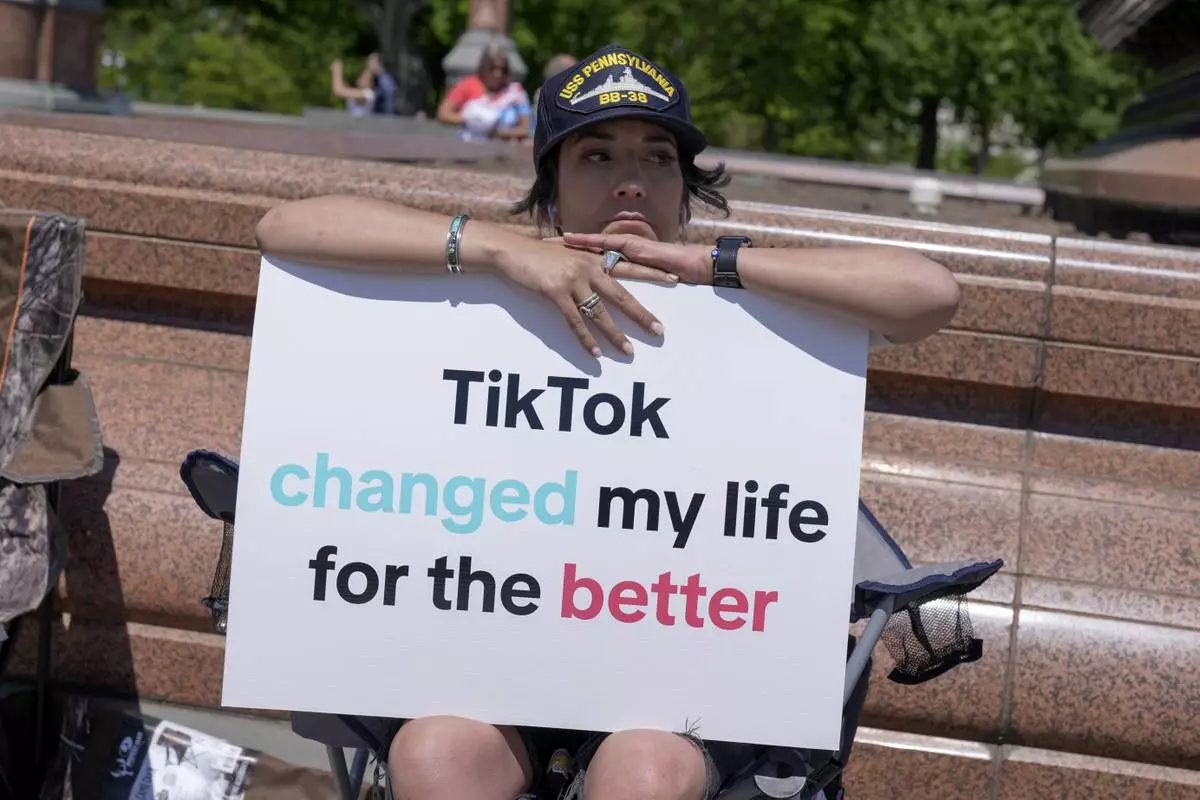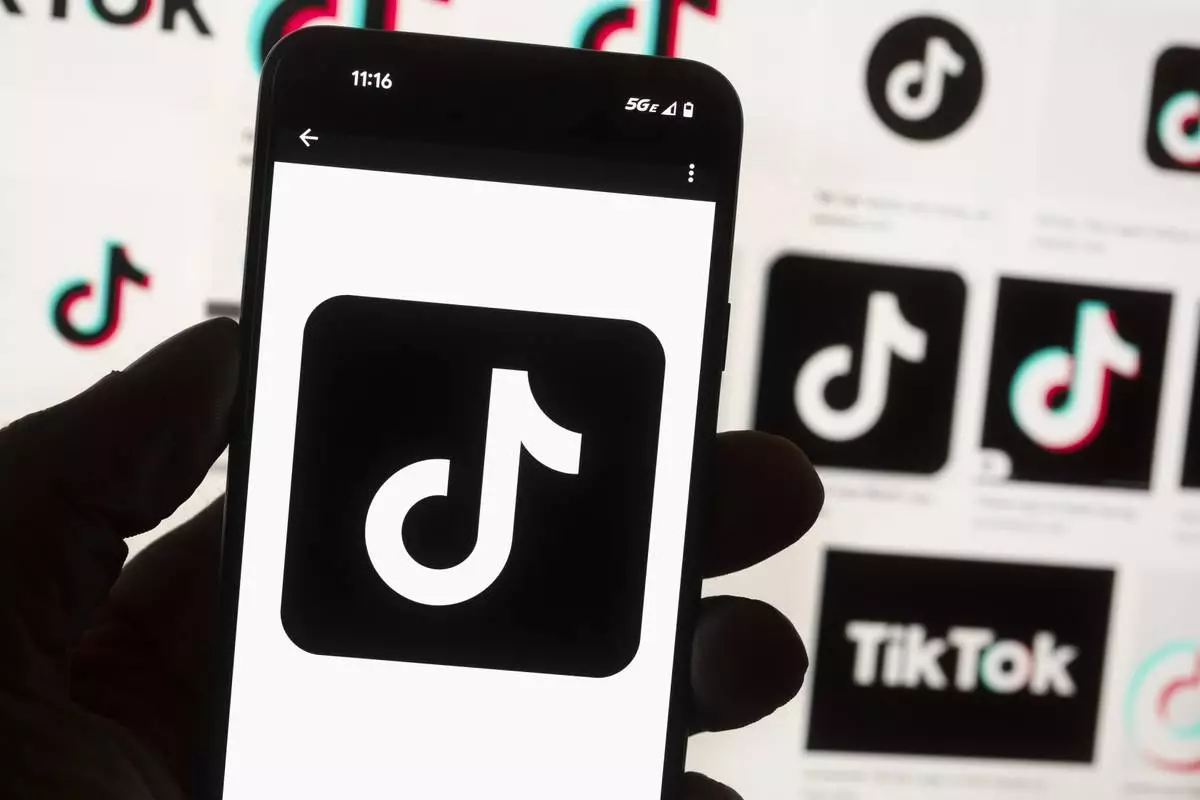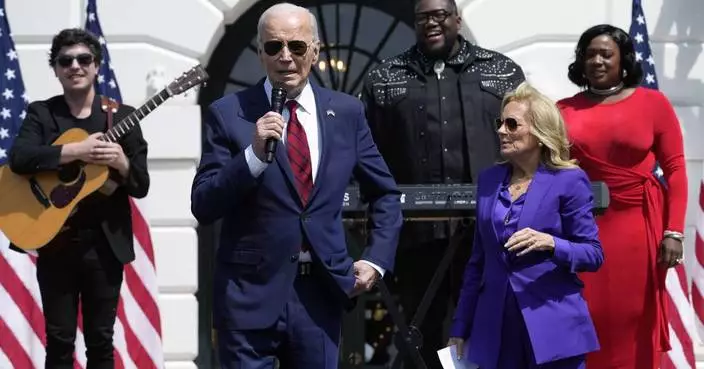A federal judge in California on Tuesday struck down the city of Oakland's ban on coal shipments at a proposed cargo terminal, siding with a developer who wants to use the site to transport Utah coal to Asia.

This Tuesday, May 24, 2016 file photo shows the former Oakland Army Base pier with the Port of Oakland in the background in Oakland, Calif. (AP Photo/Eric Risberg, File)
In a scathing ruling, U.S. District Judge Vince Chhabria in San Francisco said the information the city relied on to conclude that coal operations would pose a substantial health or safety danger to the public was "riddled with inaccuracies" and "faulty analyses, to the point that no reliable conclusion about health or safety dangers could be drawn from it."

This Feb. 5, 2016 file photo shows the former Oakland Army Base pier at left and the Port of Oakland at lower right in Oakland, Calif. (AP Photo/Eric Risberg, File, File)
The decision cheered coal proponents while opponents said they would continue to fight for cleaner air. Oakland is reviewing its options and may appeal, said Justin Berton, a spokesman for Mayor Libby Schaaf.
The issue over coal has rocked then San Francisco Bay Area city that is environmentally friendly but also economically depressed in spots.
City leaders approved construction of a rail and marine terminal in 2013 as part of a larger makeover of an Army base that was shuttered in 1999. The $250 million project in west Oakland is expected to bring thousands of jobs to a historically African-American neighborhood that is among the poorest and most polluted in the region.
Oakland officials said coal was never mentioned as a possibility but lawyers for developers said city officials always knew there would be a mix of goods, including coal.
Concerned about pollution caused by coal dust, the city moved in 2016 to ban shipments of coal and petroleum coke, a solid derived from oil refining. The decision came after Utah lawmakers approved a $53 million investment to help ship the state's coal through Oakland to Asia.
Utah Sen. David Hinkins, a Republican who represents coal-producing counties, applauded the decision on Tuesday. "It would be good for my little depressed area," he said.
Many Utah mines are now shipping through Mexico to reach markets in Japan and Korea, as the U.S. market wanes, but a California shipping point would be closer and less expensive, he said.
Utah's $53 million would still be on the table, pending a committee approval, he said.
The government-watchdog group Alliance for a Better Utah, meanwhile, said they were disappointed in the ruling, and said the public money would be better spent on local water systems or fire trucks rather than the port.
In a statement, Schaaf vowed to continue the fight. Alex Katz, chief of staff to Oakland's city attorney, said they will discuss options with the City Council.
One of the developers of the project is Phil Tagami, a close friend of California Gov. and former Oakland Mayor Jerry Brown. The governor's environmental efforts have made him a global leader in the fight against climate change, but he hasn't spoken out publicly against the project.
Chhabria agreed with attorneys for developers that the city relied on a flawed analysis to justify its ban. As an example, he said the city failed to factor in covers on the coal-carrying rail cars in its emissions estimates for the project.
It also had no meaningful assessment of how emissions would affect air quality in Oakland, he said.
The city's opposition to coal operations appeared to stem largely from concerns about global warming, but it was "facially ridiculous to suggest that this one operation resulting in the consumption of coal in other countries will, in the grand scheme of things, pose a substantial global warming-related danger to people in Oakland," the judge said.
WASHINGTON (AP) — TikTok is gearing up for a legal fight against a U.S. law that would force the social media platform to break ties with its China-based parent company, a move almost certainly backed by Chinese authorities as the bitter U.S.-China rivalry threatens the future of a wildly popular way for young people in America to connect online.
Beijing has signaled TikTok should fight what it has called a “robbers” act by U.S. lawmakers “to snatch from others all the good things that they have.” Should a legal challenge fail, observers say Chinese authorities are unlikely to allow a sale, a move that could be seen as surrendering to Washington.
Beijing may not want the U.S. action against the popular short-form video platform to set a “bad precedent,” said Alex Capri, senior lecturer at the National University of Singapore and research fellow at Hinrich Foundation. “If Beijing capitulates to the U.S., where does it end?”
In its first official response to the new law, parent company ByteDance delivered a statement Thursday on Toutiao — a Chinese news app it owns — stating it "doesn’t have any plan to sell TikTok.” The Beijing-based firm was responding to media reports that said it was exploring scenarios for selling TikTok’s U.S. business.
The legislation that U.S. President Joe Biden signed this week could allow Washington to widen its scope to target other China-related apps, such as the popular e-commerce platform Temu, and embolden U.S. allies to follow suit, said Hu Xijin, a former editor-in-chief for the party-run newspaper Global Times.
With 170 million American users, TikTok should “have more guts to fight to the very end and refuse to surrender,” Hu, now a political commentator, said Wednesday on Chinese social media.
TikTok vowed to challenge the new U.S. law, which requires ByteDance to divest its stakes within a year to avoid a ban. The company has characterized the law as an infringement on the free speech rights of its users, most of whom use the app for entertainment.
“We believe the facts and the law are clearly on our side, and we will ultimately prevail,” the company wrote on the social platform X.
The fight over TikTok has increased tensions between the U.S. and China, with both vowing to protect their economic and national security interests. U.S. lawmakers are concerned the Chinese ownership of the app could allow Beijing to exert unwanted influence in the U.S., especially on young minds. The law has followed a string of successes by Washington in curbing the influence of Chinese companies through bans, export controls and forced divestitures, drawing protests from Beijing that the U.S. is bent on suppressing China’s rise through economic coercion.
The U.S. has forced other Chinese companies to divest before, including in 2020, when Beijing Kunlun, a Chinese mobile video game company, agreed to sell the gay dating app Grindr after receiving a federal order. But TikTok, created by a Chinese company only for the overseas market and evidence of the nation's tech powers on the global stage, is a high-profile case that Beijing does not want to lose.
National dignity is at stake and could “take precedence over the financial interests of ByteDance investors,” including global investors who own 60% of the company, said Gabriel Wildau, managing director of the New York-headquartered consulting and advisory firm Teneo.
A legal challenge from the company is expected to lean on First Amendment concerns and could drag on for years. Beijing is betting on a legal win, analysts say.
What to do if TikTok doesn't prevail is likely still being debated with the Chinese leadership, said Dominic Chiu, an analyst with Eurasia Group. President Xi Jinping, who will have to sign off on whether to permit or prohibit the sale, probably has not made the final decision, Chiu said.
Luckily for Xi, there is no urgency for Beijing to decide, said Sun Yun, director of the China program at the Washington-based Stimson Center. “A lot of things could change," she said.
If lawmakers get their wish and a sale does occur, it’s likely to be a challenging and messy process for TikTok, which would have to disentangle its U.S. operations from everything else.
For one, the price tag for TikTok’s U.S. business — which is unknown — is expected to be high enough to severely limit the pool of investors and companies who’d be able to afford it. Some investors — including former Treasury Secretary Steve Mnuchin — have already positioned themselves as potential buyers of a U.S. version of TikTok. ByteDance, which is privately held, is valued at $220 billion, according to market tracker Pitchbook.
And there’s uncertainty about what would happen with the TikTok algorithm, the secret sauce that feeds users short videos based on their interests and has contributed to the platform’s status as a cultural juggernaut.
ByteDance would be barred from controlling the algorithm of a U.S. spinoff of TikTok. Many experts believe Chinese authorities would block any sale of the technology that populates people's TikTok feeds under export regulations revised in 2020, when then-President Donald Trump unsuccessfully tried to ban TikTok through an executive order that was blocked in federal courts.
Some, including Mnuchin, have said TikTok would need to be rebuilt in the U.S. using new technology. But it's unclear what that might look like, or how well it can reproduce the type of video recommendations users have grown accustomed to seeing.
Robin Burke, a professor of information science at the University of Colorado Boulder, says some aspects of the algorithm might be replicated by industry insiders. But he also noted there are areas where TikTok appears ahead of its competitors and duplication might prove challenging.
“TikTok has all the experience, they have all the data,” Burke said. “I think it’s unlikely that a U.S. business — if they don’t inherit the technology from the parent company — would be able to build something equivalent. Certainly not right away.”
AP journalist Dake Kang contributed from Beijing.

FILE - A TikTok content creator, sits outside the U.S. Capitol, April 23, 2024, in Washington. TikTok is gearing up for a legal fight against a U.S. law that would force the social media platform to break ties with its China-based parent company or face a ban. A battle in the courts will almost certainly be backed by Chinese authorities as the bitter U.S.-China rivalry threatens the future of a wildly popular way for young Americans to connect online. (AP Photo/Mariam Zuhaib, file)

FILE - The TikTok logo is displayed on a mobile phone in front of a computer screen, Oct. 14, 2022, in Boston. TikTok is gearing up for a legal fight against a U.S. law that would force the social media platform to break ties with its China-based parent company or face a ban. A battle in the courts will almost certainly be backed by Chinese authorities as the bitter U.S.-China rivalry threatens the future of a wildly popular way for young Americans to connect online. (AP Photo/Michael Dwyer, File)













